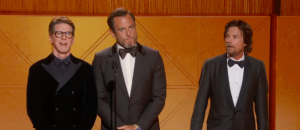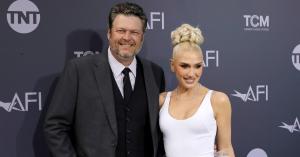Eric Carle, the beloved author of The Very Hungry Caterpillar, has died at age 91. No cause of death has been given at this time, but his family released a brief and poetic statement on his website revealing that Carle passed away on May 23. “In the light of the moon, holding on to a good star, a painter of rainbows is now traveling across the night sky,” the site reads. According to a family statement, Carle “passed away peacefullyand surrounded by family members on May 23, 2021 at his summer studio in Northampton, Massachusetts.”
Carle illustrated nearly 70 different books for children over the course of his long career, and his most famous work, The Very Hungry Caterpillar, became one of the most popular kid’s books of all time. Some of his other beloved books include Brown Bear, Brown Bear, What Do You See? and The Grouchy Ladybug.
Videos by PopCulture.com
Our hearts are heavy tonight with the loss of our beloved co-founder Eric Carle who has passed away. He was our friend, our inspiration, and a creative visionary for generations of artists and children. #RememberingEricCarle pic.twitter.com/kqdzZgl1Kv
— Eric Carle Museum (@carlemuseum) May 26, 2021
Carle told NPR in 2007 that his love of nature and storytelling came from his father. “I think it started with my father. He took me for long walks and explained things to me,” Carle explained. Carle was born in the United States, but his parents were homesick and decided to return home to Germany, unfortunately right before WWII. “All of us regretted it,” he remembered. “During the war, there were no colors. Everything was gray and brown and the cities were all camouflaged with grays and greens and brown greens and gray greens or brown greens, and … there was no color.” Carle moved back to the U.S. after graduating from art school at age 23 and was hired by The New York Times. He served in the military during the Korean War and moved into advertising following his return.
Carle explained to The Guardian in 2016 why he believed that The Very Hungry Caterpillar had remained so popular for over 50 years. “I did not understand why it was so popular,” he admitted. “But over time I have come to believe many children can identify with the helpless, small, insignificant caterpillar, and they rejoice when it turns into a beautiful butterfly. I think it’s a message of hope. It says: I too can grow up. I too can unfold my wings (my talent) and fly into the world. This is a universal concern that children have: Will I grow up? Will I be able to function as an adult?”








